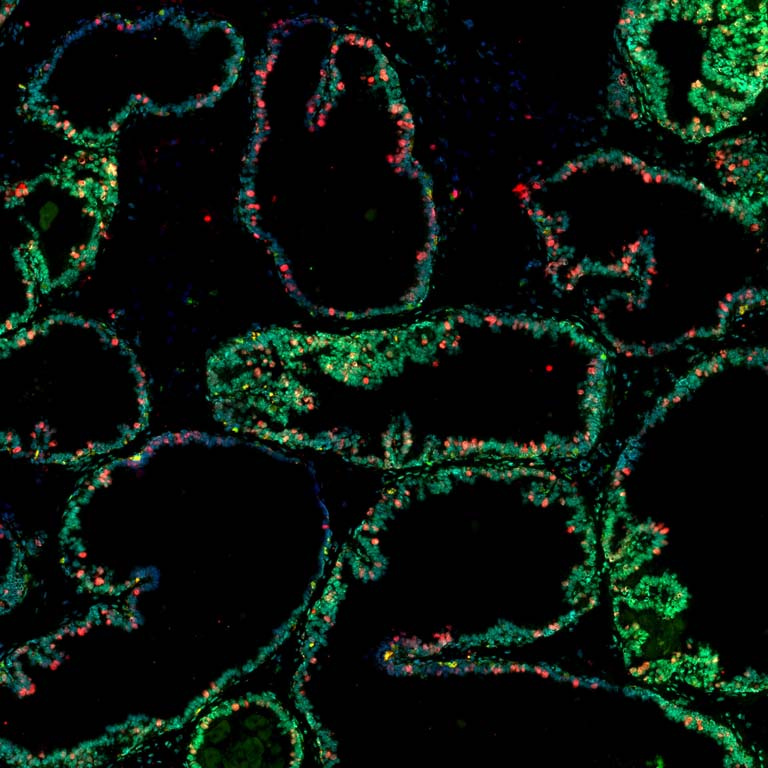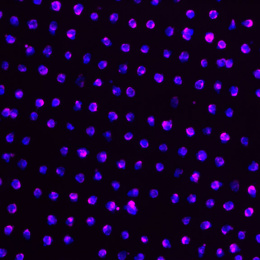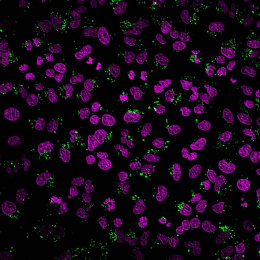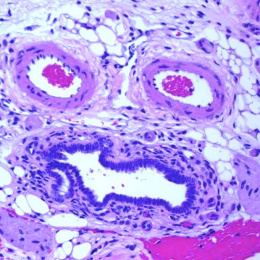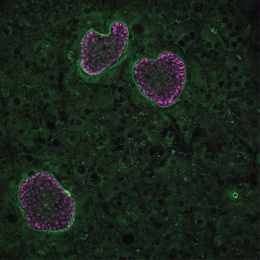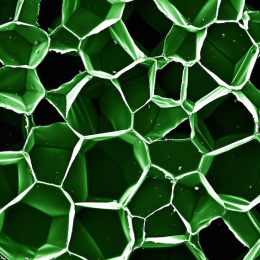Chemical Probes Identify Cancer Protease Activity 1
Chemical Probes Identify Cancer Protease Activity 1
Ava Soleimany, Jesse Kirkpatrick, Susan Su, Jaideep Dudani, Qian Zhong, Ahmet Bekdemir, Sangeeta Bhatia
Koch Institute at MIT, Institute of Medical Engineering and Science
Enzymes play critical roles in health and disease. In cancer, enzymes called proteases help tumor cells escape and invade by degrading the surrounding tissue matrix. In order to understand how proteases aid in cancer progression, it’s important to be able to visualize where these enzymes are active. The Bhatia Lab has developed chemical probes that can measure and localize protease activity within tissue sections. Here, a section of prostate tissue from a mouse engineered with genetic mutations that give rise to prostate cancer is labeled with a chemical probe (green) that measures the activity of proteases called MMPs. Surprisingly, this revealed an unexpected increase in MMP activity in normal-appearing prostatic glands, visualized here. Regions of the tissue with high MMP activity were also rapidly dividing, as shown by staining for a cell proliferation marker (Ki-67, red). These probes could lead to new insights into how proteases contribute to cancer and enable new ways to detect and target this devastating disease.
